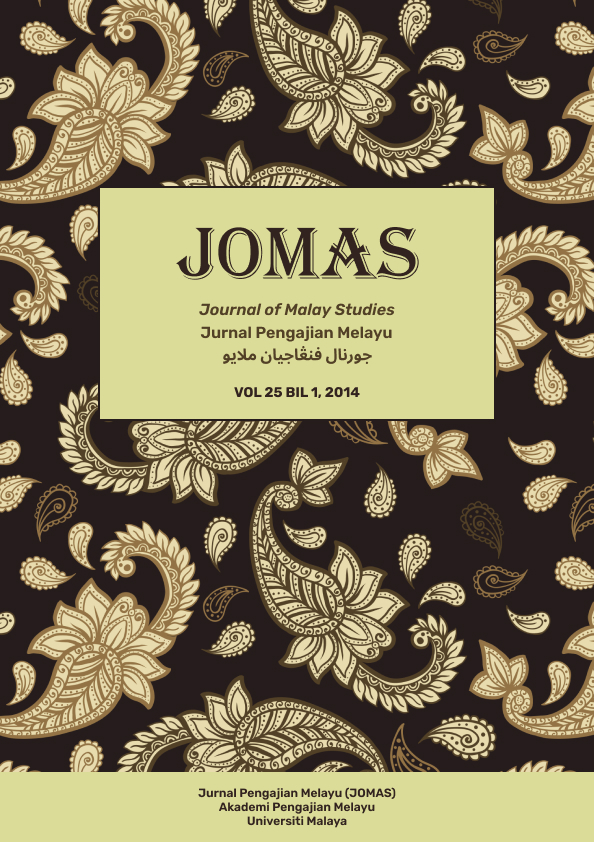MALAYAN MUSLIMS AS A REFLECTION OF MALAYNESS IN ANTHONY BURGESS’S ‘TIME FOR A TIGER’
Main Article Content
Abstract
In one of the most overlooked English literary text on the Malay
World, namely Anthony Burgess’ novel Time for a Tiger (1956), the
depictions of Islamic practices through the Malay characters show their
hypocrisy and that they are wayward Muslims (Zawiah Yahya, 2003).
This paper then seeks to explore the role of Islam as a paradigm of
Malayness in literature portrayed through characters understood to be
Malay. The objectives of this study are met by undertaking a close
reading of the text as a methodology to explore how the Malay
characters understand and practise Islam, and to discover whether they
conform to the Islamic beliefs as understood by non-Muslims; here, to
Burgess’ understandings of Malayan Islam. The conceptual framework
is based on the paradigm of Malayness in literature as an everydaydefined
social reality consisting of six elements – the Malay language,
Islam, the Malay rulers, adat/culture, ethnicity and identity (Ida
Baizura Bahar, 2010) as opposed to it as an authority-defined social
reality comprising only of Islam, the Malay language and the Malay
rulers (Shamsul A. B., 2001). The findings demonstrate that Burgess
could have made an implicit criticism of Malayan Muslims by mocking
the reality of the Malays through his observations during his stay in
Malaya and that the paradigm of Malayness in literature is not an
authority-defined but an everyday-defined social reality. Findings from
this study therefore can contribute to the on-going discourse on Islam
and Malayness in literature as well as English Literature on the Malay
World.
Keyword: Malayness, Islam, Muslims, English literature on the Malay
world

